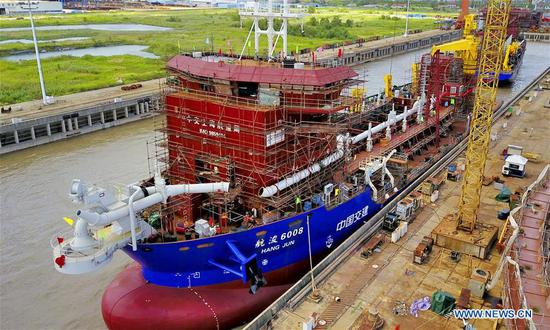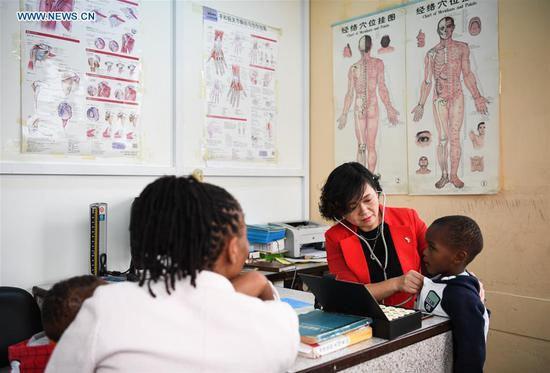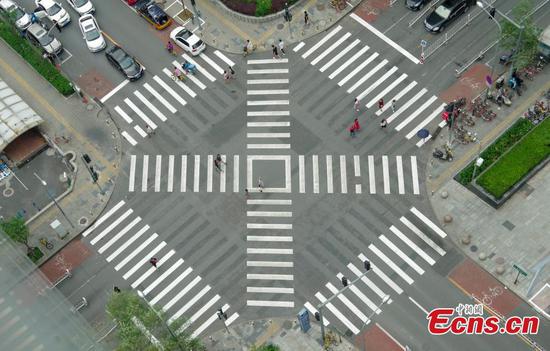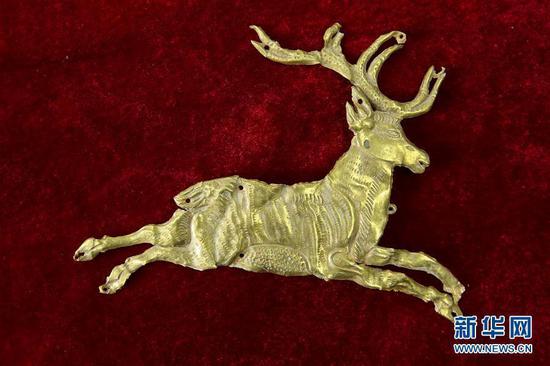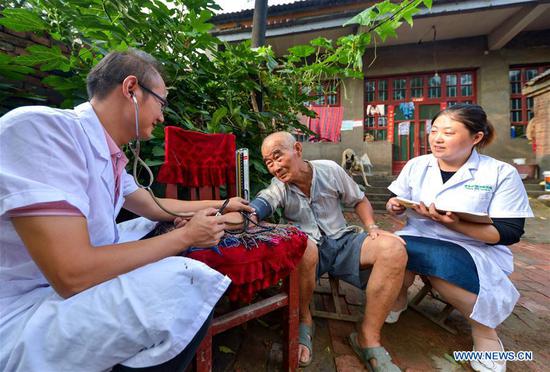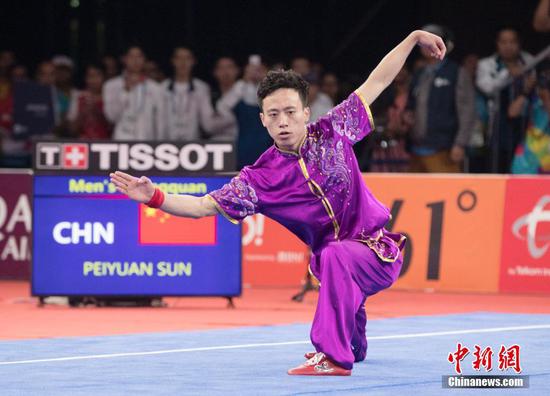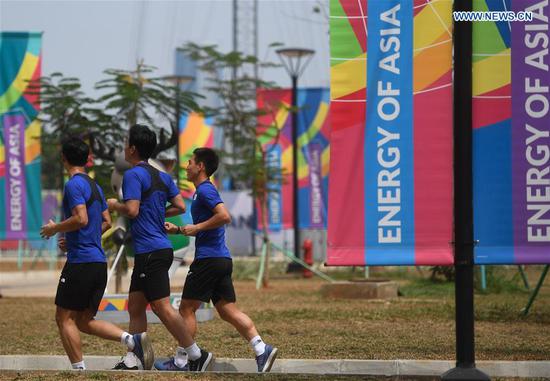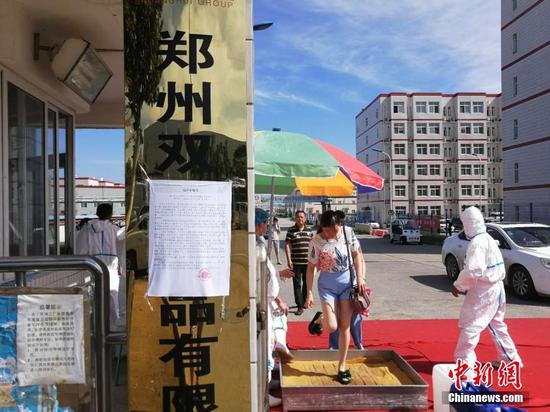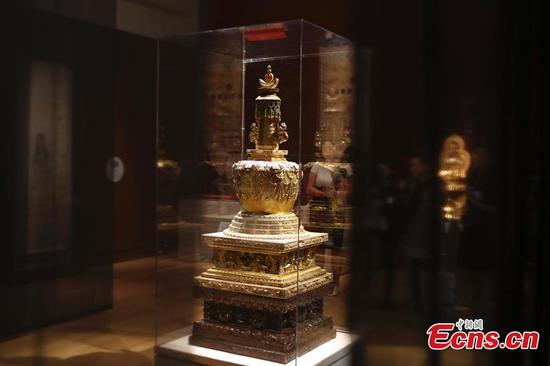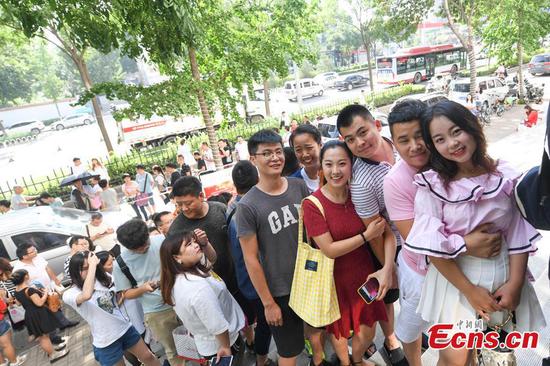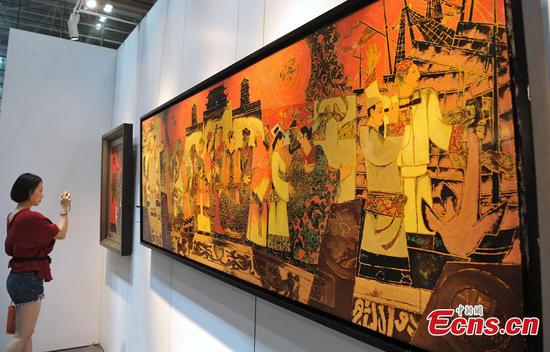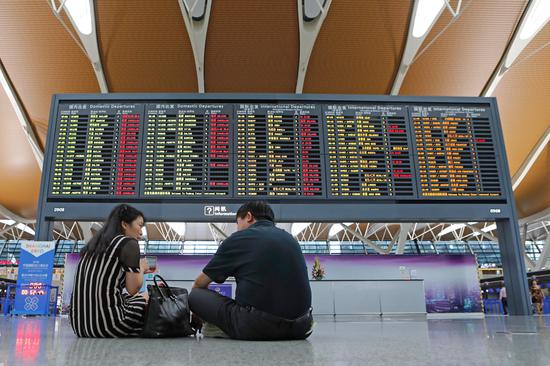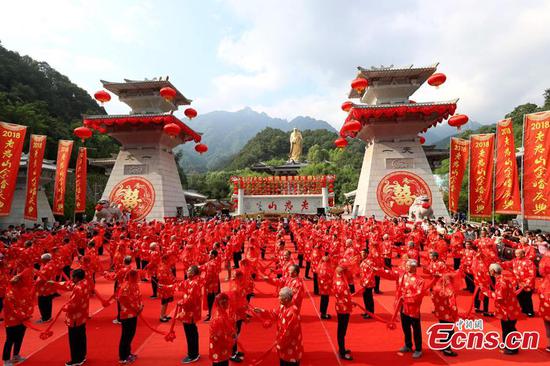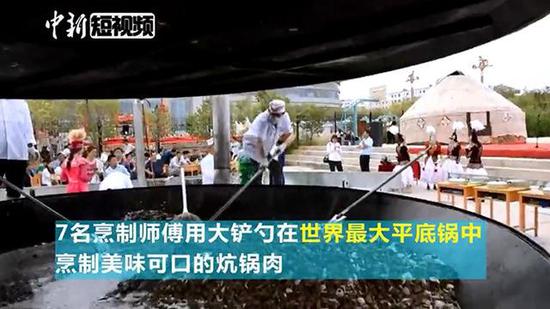The draft amendment to the personal income tax law is expected to be considered at the fifth meeting of the 13th National People's Congress Standing Committee held from August 27 to 30, according to a report by National Business Daily.
The threshold of personal income tax is to be raised from 3,500 yuan per month as stipulated in the current personal tax law to 5,000 yuan per month (60,000 yuan per year), according to the draft.
If the draft is approved, it will take into effect on Jan 1, 2019.
More than 130,000 public comments were collected by the end of July, the deadline for submitting comments on the draft amendment. The question of whether to raise the threshold of personal income tax, how to set the special deduction and when to implement the relevant adjustment attracted most attention and are expected to be answered in the deliberations of the meeting.
Some members of the Standing Committee of the NPC suggested that the threshold should be raised to between 6,000 yuan ($876) and 10,000 yuan during the first consideration of the draft. Many white-collar workers also said the threshold should be further raised as 5,000 yuan per month is relatively low, according to the report.
Guan Qingyou, dean and chief economist at Rushi Financial Research Institute, said the threshold being drawn up in the draft is still low, which is not helpful to safeguard the interests of the low- and middle-income groups.
From the international experience, the adjustment of personal income tax system to income distribution is mainly reflected in reducing the tax burden of low- and middle-income groups and maintaining a higher tax burden on high-income people, Guan said.
He said that while prices has increased considerably since seven years ago, the last time when China carried out a personal income tax threshold adjustment, the threshold and applicable tax rate have remained at the level of 2011, which increased the tax burden on low- and middle-income groups to a certain extent.
The adjustment of the personal income tax should aim at tax reduction and the threshold should be based on a dynamic adjustment mechanism considering economic indicators such as the Consumer Price Index, housing prices, per capita income level, gross domestic product and fiscal revenue, Guan said.
Nie Riming, a researcher at the SIFL Institute, a Shanghai-based research institution, said the reason why public has a high expectation on the tax threshold adjustment this time is that the threshold has not been adjusted in the seven years from 2011 to 2018.
However, some experts hold the opinion that a threshold of 5,000 yuan per month is more appropriate considering the effect of tax cuts brought about by the expansion of low-grade tax rates and the new-added special additional deductions.
According to the draft, the special deductions include the basic pension insurance, primary medical insurance, unemployment insurance and housing fund paid by individual residents in accordance with the scope and standards stipulated by the State; the special additional deductions include the expenditure of children's education, continuing education, serious illness medical treatment, interest on housing loans and housing rent.
The report said many workers who have established families have high expectations for the special deductions.
The draft does not specify how to deduct the special additional items, but stipulates that "the specific scope, standards and implementation steps of the special additional deductions shall be determined by the financial and tax departments of the State Council in consultation with the relevant departments."
Zhang Bin, researcher of the National Academy of Economic Strategy, Chinese Academy of Social Sciences, said the new added special additional deduction is a significant tax optimization measure as it takes the differences of personal burdens into account and is more in line with the basic principles of personal income tax and conducive to tax fairness.
Liu Zuo, vice-president of the Finance and Taxation Law Research Association, China Law Society, said the reform of the personal income tax system is rather complicated as it involves many taxpayers and has a great interest relationship.
Liu said the amendment to the personal income tax law may need to be studied repeatedly, demonstrated in many ways, and consulted publicly by the people of the whole country before it can be submitted to the Standing Committee of the NPC for consideration again, or even to the NPC for consideration.
It might be difficult to complete the legislative work of the tax reform this year, Liu said.
He suggested the reform can be proceed in two steps: the first step, which can be called "minor reform", is to increase the basic fee deduction of tax items, such as wages and salaries, adjust the level and structure of tax rate appropriately and change the monthly levy into annual levy to solve the current prominent problems and ease the main contradictions; the second step, or "major reform", is to gradually improve the overall plan of China's personal income tax system reform on the basis of full investigation, research and demonstration.










